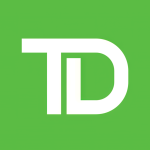Welcome to our dedicated page for Toronto Domin SEC filings (Ticker: TD), a comprehensive resource for investors and traders seeking official regulatory documents including 10-K annual reports, 10-Q quarterly earnings, 8-K material events, and insider trading forms.
Toronto-Dominion Bank鈥檚 latest 10-K tops 300 pages of Basel III capital metrics, cross-border risk disclosures and segment profit tables鈥攙aluable, but time-consuming. If you have ever searched 鈥淭oronto-Dominion Bank SEC filings explained simply鈥� or wondered how to track 鈥淭oronto-Dominion Bank insider trading Form 4 transactions,鈥� you know the challenge.
Stock Titan solves this problem. Our AI reads every Toronto-Dominion Bank annual report 10-K, quarterly earnings report 10-Q filing and 8-K material events, then delivers plain-language summaries, capital-ratio callouts and side-by-side quarter comparisons. AG真人官方-time alerts surface Toronto-Dominion Bank Form 4 insider transactions the moment they hit EDGAR, so you never miss executive stock movements. Need context? We map each disclosure to the bank鈥檚 Canadian retail, U.S. retail and wholesale segments, showing exactly where net interest margin or credit-loss provisions shifted.
Use the platform to:
- Monitor executive stock transactions Form 4 and spot sentiment shifts before earnings
- Compare CET1 and liquidity metrics across 10-K and 10-Q cycles
- Review proxy statement executive compensation without sifting through appendices
The Toronto-Dominion Bank (TD) is issuing senior, unsecured Callable Fixed-Rate Notes due July 18, 2028 (CUSIP 89115JBF9). The $1,000-denominated notes carry a 4.35% fixed coupon, paid quarterly on the 18th of January, April, July and October, beginning October 18, 2025. TD may redeem the notes in whole, at par, on any quarterly Optional Call Date starting July 18, 2026, upon five business-day notice. If not called, principal plus any accrued interest is payable at maturity on July 18, 2028.
The securities are issued under TD鈥檚 Senior Debt Securities, Series G program, are bail-inable under Canada鈥檚 CDIC Act, and rank pari-passu with TD鈥檚 other unsecured senior obligations. They are not insured by CDIC, FDIC or any other agency and will not be listed on an exchange; secondary liquidity therefore depends on dealer market-making.
Investors purchase at 100% of principal; TD Securities (USA) LLC, the sole underwriter, receives an up-to-1.75% commission and may allocate concessions to other dealers. Minimum investment is $1,000. U.S. holders are expected to treat the securities as fixed-rate debt issued without OID; detailed U.S. and Canadian tax discussions are included. The prospectus supplement highlights key risks: TD credit exposure, bail-in conversion risk, call risk in declining-rate environments, limited secondary market, and potential price concessions from underwriting and hedging costs.
Prohibitions apply to retail distribution in the EEA and UK under PRIIPs regulations. Settlement is T+2 at issuance; secondary trades normally settle T+1 under SEC Rule 15c6-1.
The Free Writing Prospectus outlines the terms of Autocallable Market-Linked Step Up Notes to be issued by The Toronto-Dominion Bank (TD) and linked to the Russell 2000 Index (RTY). Each note has a $10 principal and a tenor of approximately five years. The notes pay no coupons and are not listed on any exchange.
Automatic call feature: On each of the four annual Observation Dates the notes will be redeemed if RTY closes at, or above, its Starting Value. The projected Call Amounts range from $10.85鈥�$10.95 in year 1 (鈮�8.5-9.5% premium) up to $13.40鈥�$13.80 in year 4 (鈮�34-38% premium). Early redemption caps further upside potential.
Payout at maturity (if not called):
- If RTY is flat or up to +45% versus the Starting Value, investors receive the principal plus a fixed $4.50 Step-Up Payment (45% total return).
- If RTY is above +45%, investors participate 1-for-1 in all further gains.
- If RTY is below the Starting Value, repayment declines point-for-point with the index; the Threshold Value equals 100%, so any decline erodes principal, down to total loss at a -100% move.
Key risks called out in the term sheet include: full downside exposure below the Starting Value, limited upside if called, TD credit risk, a secondary-market price expected to be below the public offering price, and exposure to small-cap volatility inherent in RTY.
Investors should review the linked Preliminary Offering Documents and risk disclosures before purchasing the notes.
The Toronto-Dominion Bank (TD) is marketing a new structured product 鈥� Autocallable Market-Linked Step Up Notes linked to the Russell 2000庐 Index (RTY).
- Structure: $10 principal per unit; senior unsecured, Series H. Four annual Observation Dates (鈮� Jul 2026-2029). Notes are automatically called if the Index is 鈮� 100% of its Starting Value on any Observation Date.
- Call payouts: Investors receive $10 plus a Call Premium that steps from $0.85-$0.95 (8.5-9.5%) in year 1 to $3.40-$3.80 (34-38%) in year 4. Corresponding Call Amounts range from $10.85-$13.80.
- Maturity (鈮� Jul 2030): 鈥� If not called and Ending Value 鈮� Starting Value but 鈮� 145% (Step Up Value), a fixed 45% return ($14.50 per unit). 鈥� Above 145%, 1-for-1 participation in RTY upside. 鈥� Downside is 1-for-1 below the Threshold (100% of Starting Value), exposing up to 100% loss of principal.
- Pricing economics: Public offering price $10.00; initial estimated value $9.196-$9.496. Gap reflects an underwriting discount ($0.20/unit) and hedging charge ($0.05/unit). Minimum purchase 100 units; discounted pricing for 鈮�300,000 units.
- Risk highlights: 鈥� Credit risk of TD (senior unsecured). 鈥� No periodic interest, no dividend pass-through. 鈥� Limited or no secondary market; prices likely below issue price. 鈥� Small-cap index volatility may increase risk. 鈥� U.S. and Canadian tax treatment uncertain. 鈥� Notes are not FDIC/CDIC insured.
- Key parties: Co-calculation agents TD & BofA Securities; distributors include BofA Securities, MLPF&S and TD Securities (USA).
The product targets investors who are moderately bullish on U.S. small-caps over the next four years, are comfortable with TD credit exposure, and can tolerate full downside loss in exchange for capped annual call premiums and a 45% 鈥渟tep-up鈥� payoff if held to maturity.


